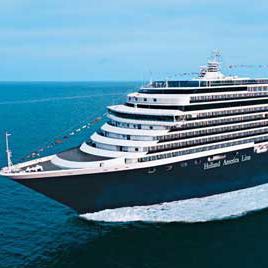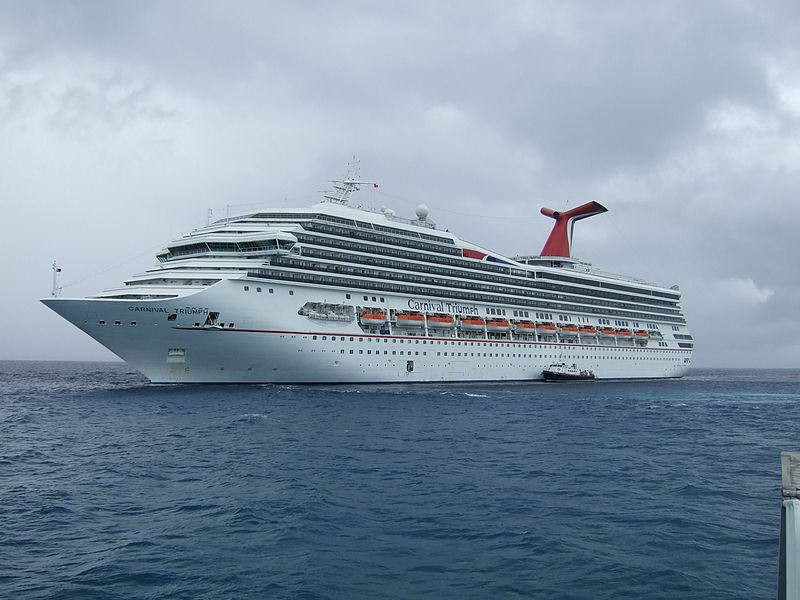Travel News
Two Reasons to Buy Travel Insurance for Your Next Cruise
Image Credit: Wikimedia Scott L.
As passengers of the Carnival Triumph learned the hard way, having travel insurance doesn’t always pay off. When the crippled ship was stranded at sea for several days, passengers with travel insurance had little recourse. Some are accepting Carnival’s offer of a refund, a free cruise and $500, while a few others are seeking legal recourse. But when life circumstances get in the way, it’s the traveler who really gets nailed. And that is when the inevitable question of travel insurance arises.
What to buy, when to buy, and what to avoid in insurance remains a hot topic among travelers, as well as a confusing one. And it can be an expensive problem, if not approached correctly. Consider the following cases:
David R. was looking forward to spending much of his retirement cruising around the world when he booked a world cruise for January, 2012 with Holland America Cruise Lines, through a Middleton, Wisconsin travel agent. But soon after, David was diagnosed with cancer and decided to cancel the trip for medical reasons. Despite explaining his situation to the cruise line and canceling over 100 days before the scheduled date of departure, Holland America would not return his $10,500 deposit. Why? He had no travel insurance. David then asked if he could put that deposit towards credit on a future cruise. Again, the answer was no.
That’s when both the traveler and the travel agent wrote to us. We reached out to Holland America on David’s behalf, and received this response:
“We regret that [the passenger] needed to cancel his cruise for these reasons and empathize with the circumstances that led to this decision. We are also sorry that he found himself in this difficult position without adequate cancellation protection. Although the situation is very unfortunate, our cancellation policies are clearly detailed in our brochures and online, and must apply to everyone equally in order to maintain the integrity of our company and the cancellation protection plans we offer. Many of our guests purchase our cancellation protection to safeguard against unforeseen difficulties every time they sail, and offering the benefits of this coverage to guests who do not purchase it would be unfair to those guests who do. Although we are truly sorry for the circumstances involved in his cancellation, we are unfortunately not able to offer a refund or credit toward another cruise. And while we realize this decision is disappointing, we are certain you can understand that we cannot make an exception for every guest who cancels despite very unfortunate circumstances, and it would put us in a very compromising position to make exceptions for some travelers, but not for others.”
Not surprisingly, Holland America then recommended that guests booking with their cruise line purchase the Cancellation Policy Plan offered by…Holland America.
 This sort of retrospective advice might provide little comfort for David, and unfortunately he’s not the only one; heartbreaking cancellation stories happen more often than you’d think.
This sort of retrospective advice might provide little comfort for David, and unfortunately he’s not the only one; heartbreaking cancellation stories happen more often than you’d think.
William M. found himself in a similar situation. Seniors citizens William and his wife scheduled a 10-day Baltic cruise with Holland America after saving up for over a year. Just six days before the date of the cruise, his wife suffered a stroke and was swiftly rushed to the hospital. She remained in the intensive care unit for over two days before she stabilized.
From the emergency room, William made the call to Holland America to ask for advice in the case of a life-threatening illness and to, hopefully, postpone their trip.
Holland America then informed William that they would not apply credit to a future cruise and that he would not get back his prepayment. Interestingly, both the airlines and hotels William had booked immediately offered refunds or credit vouchers.
William has since petitioned the president of Holland America directly for a credit voucher. He also asked his AAA travel agent to submit a grievance on his behalf. Holland America would not budge on either of these requests. Not surprisingly, William believes this represents a fundamentally unjust policy within the cruise industry, and that only with a massive campaign can he attempt to change what he considers to be abusive practices. As a result of his experience with the cruise line, he has started an online petition to boycott Holland America. William believes that only with an enormous public effort could this issue be resolved.
Here’s the problem: While these sad cases are certainly unfortunate, cruise lines have contracts that clearly delineate their refund policies. These are contracts that passengers sign when they purchase their cruise. And those policies regarding refunds and cancellations are notoriously restricted.
For travelers looking to book a cruise in the near future, these two stories underscore the importance of investing in travel insurance and debunk the “it won’t happen to me” mentality. Both David and William had to cancel their cruises for medical reasons.
If they had purchased travel insurance, both of these customers could have had some recourse in getting their out-of-pocket costs reimbursed.
Of course, choosing the right travel insurance can be very complicated. Holland America advises cruisers to use their cancellation plan, but travelers also have the option of paying for third-party travel insurance.
 For example, TravelGuard explains that the cost of travel insurance depends on the age of the traveler and the cost of the trip, and that typically you can expect to pay between 5 to 7 percent of the total trip cost. Prices of insurance vary depending on the level of coverage you desire. For a hypothetical 7-day, $5,000 cruise with a 45-year-old traveler, insurance would cost $269 under the Gold plan, TravelGuard’s most popular plan purchased for cruises.
For example, TravelGuard explains that the cost of travel insurance depends on the age of the traveler and the cost of the trip, and that typically you can expect to pay between 5 to 7 percent of the total trip cost. Prices of insurance vary depending on the level of coverage you desire. For a hypothetical 7-day, $5,000 cruise with a 45-year-old traveler, insurance would cost $269 under the Gold plan, TravelGuard’s most popular plan purchased for cruises.
For a greater degree of coverage, travelers could purchase the Platinum Plan for $400, which provides the greatest available coverage. For a less expensive option, travelers can choose the Basic Plan at $214, which provides less coverage and limits the reasons for cancellation.
Cruisers can expect to pay about 40 percent more if they want to purchase Cancel for Any Reason coverage, which can be added on as an upgrade to any of the aforementioned plans.
Holland America offers both a cancellation waiver and traditional insurance. It’s important to remember the standard cancellation plan is NOT travel insurance, but protects your out-of-pocket costs should you need to cancel. The travel insurance plan is underwritten by Stonebridge Casualty Insurance Company and covers situations like trip interruption and delay, medical protection and baggage delay. Again, rates depend on the cost of the trip.
But here’s the bottom line: It’s almost always a better option to buy travel insurance from a third party and not from the travel provider itself, and for one very compelling reason: If the travel provider (tour operator, resort or cruise line) suffers its own financial problems, your insurance is also jeopardized.
 One of the other benefits of choosing a third-party provider is that they can provide you with many different levels of coverage instead of a one-size-fits-all plan.
One of the other benefits of choosing a third-party provider is that they can provide you with many different levels of coverage instead of a one-size-fits-all plan.
And it’s always a better option to buy travel insurance when you have a sizable investment in your trip and you are buying a restricted or nonrefundable ticket or cruise trip.
David and William both declined travel insurance because they thought they had no reason to predict that their respective medical emergencies would occur. Their cases stress that travel insurance is not just for those in poor health.
In selecting a policy, shop around and choose the one that best suits your needs. Online brokers such as InsureMyTrip.com and SquareMouth.com have handy side-by-side comparisons of what’s covered for what price, but don’t let that be your only resource. Pick up the phone and talk to a travel agent or insurance broker, or directly with the insurance provider, before making a decision. Explain all of the potential scenarios that such as sick or elderly relatives, weather concerns, or potential job loss.
More importantly, always read the policy thoroughly and make sure you understand what is, and is not, covered. Sometimes those who buy insurance have their claims denied because of misunderstood nuances within the insurance policy. Here’s one resource to learn more about picking the travel insurance policy for you.
For more cruise travel and travel insurance, check out:
- Carnival Triumph: Passenger Rights and Cruise Industry Changes
- Post Carnival Triumph: How Safe is Your Cruise?
- Peter’s Travel Tip: On-Going Cruise Safety Issues
- Facts of Medical Evacuation
By Michelle Silverstein for PeterGreenberg.com













